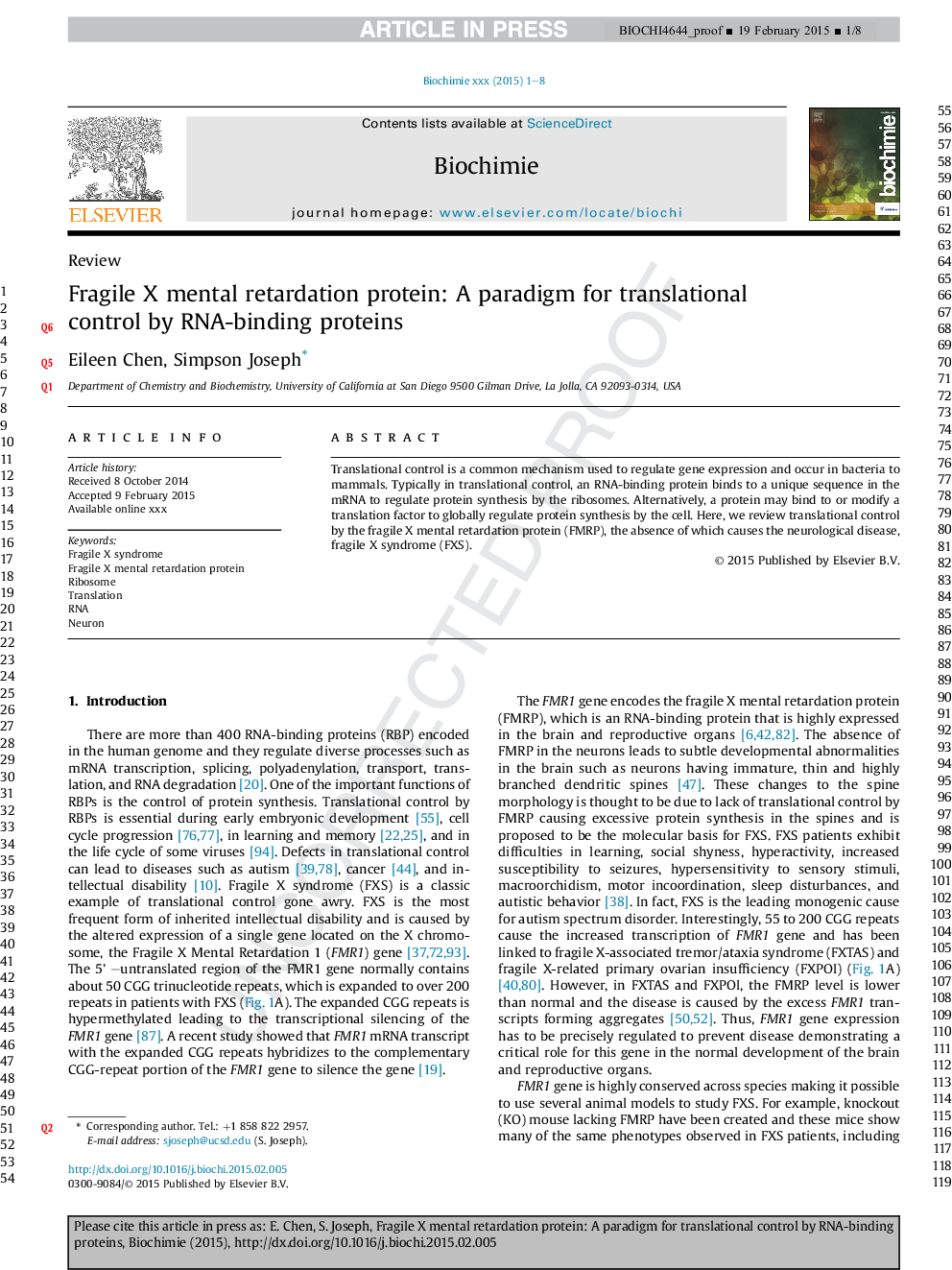| Article ID | Journal | Published Year | Pages | File Type |
|---|---|---|---|---|
| 8304931 | Biochimie | 2015 | 8 Pages |
Abstract
Translational control is a common mechanism used to regulate gene expression and occur in bacteria to mammals. Typically in translational control, an RNA-binding protein binds to a unique sequence in the mRNA to regulate protein synthesis by the ribosomes. Alternatively, a protein may bind to or modify a translation factor to globally regulate protein synthesis by the cell. Here, we review translational control by the fragile X mental retardation protein (FMRP), the absence of which causes the neurological disease, fragile X syndrome (FXS).
Related Topics
Life Sciences
Biochemistry, Genetics and Molecular Biology
Biochemistry
Authors
Eileen Chen, Simpson Joseph,
